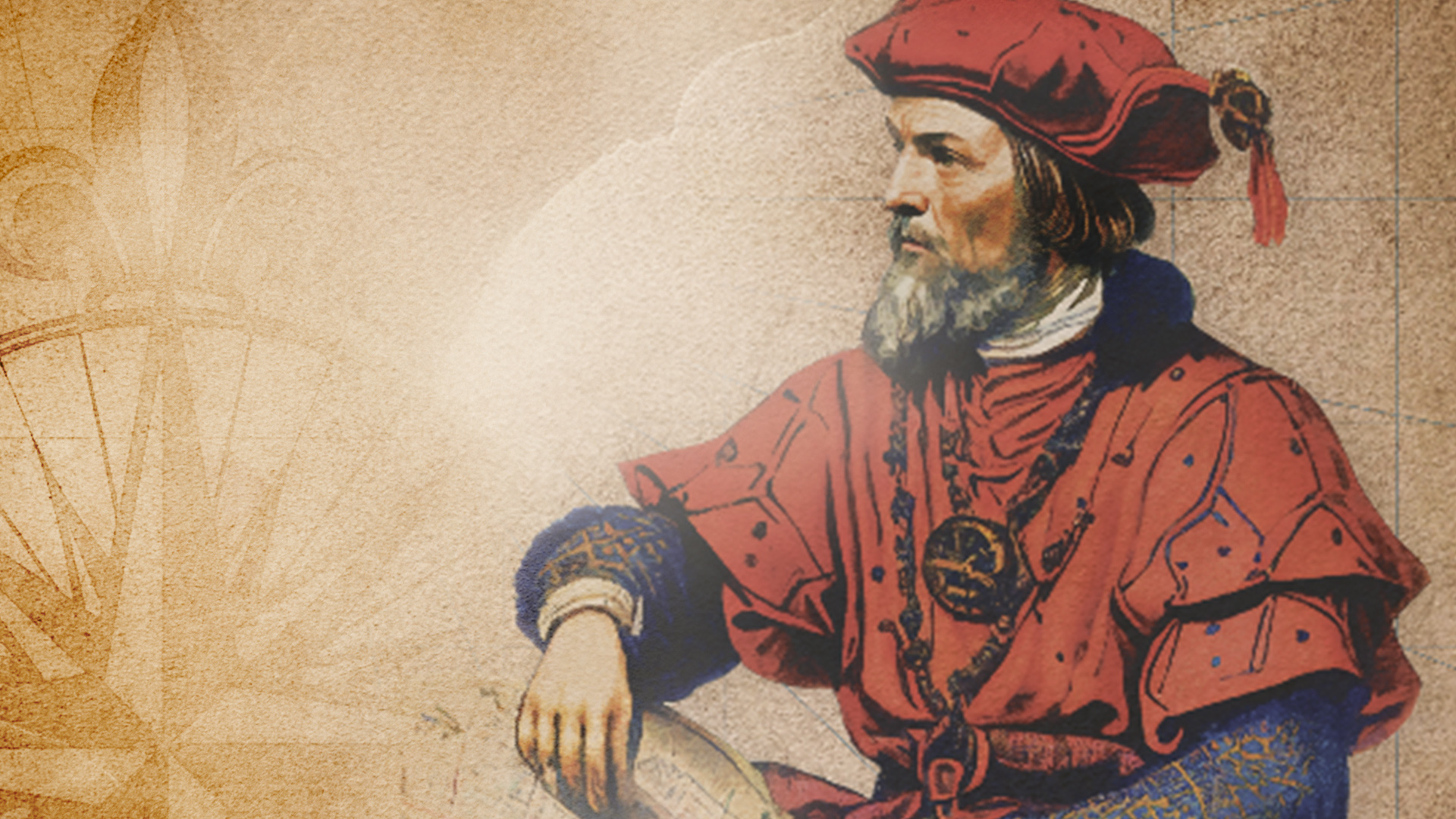Diogo de Teive was a navigator and squire of the House of Prince Henry the Navigator, to whom we owe the recognition of the islands of the Western Group of the Azores, Flores and Corvo, of which he was the first Donatory captain.
Son of Lopo Afonso de Teive, squire of the House of Prince Henry the Navigator and ordinary judge in the city of Oporto, and his wife Leonor Gonçalves Ferreira, sister of the bishop of Coimbra, he was born around 1415 in the city of Oporto.
Like his father, he was a squire in the house of Prince Henry, and it was in this capacity that he undertook two voyages of exploration of the seas of the Azores. Around 1450, following the donation of the captaincy of the island of Terceira to Jácome de Bruges, he took part in the process of populating the island, where he later served as ombudsman to the Donatary Captain.
Some time later, in 1452, together with his son, João de Teive, he undertook a voyage of exploration to the west, during which he sighted the islands of Flores and Corvo, the last to be recognised in the Azores archipelago. This discovery occurred on the return of his second trip, and those islands were initially considered a new archipelago, with the name of Floreiras Islands.
On this trip, in addition to the discovery of the islands of the Azorean Western Group, Diogo de Teive have seen the Great Banks of Newfoundland. Because of this, he is mentioned by Fernando Columbus, son of Christopher Columbus, and Bartolomé de Las Casas, as the navigator who, four decades before Columbus, had undertaken a voyage to the Americas.
He then left for Madeira at the behest of Prince Henry the Navigator, where he settled in order to set up a water mill for the production of sugar, moving on a decade later to the island of Terceira, where he faced intense conflicts with the Donatory captain Jácome de Bruges.
Some of Diogo de Teive’s descendants obtained particular recognition, as was the case of Frei António de Teive, Augustinian theologian and preacher, and Diogo de Teive, celebrated humanist from Braga, who was his great-nephew.
Diogo de Teive
